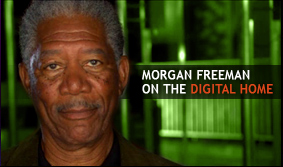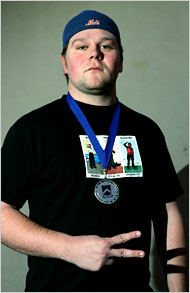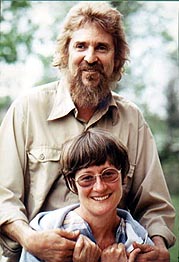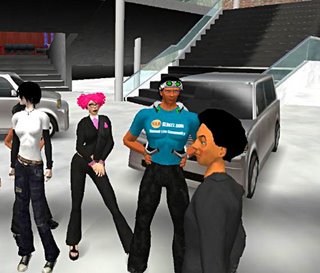 I recently posted about George Lucas getting out of the blockbuster film biz, while he continued to ponder online monetization. Then the guy from Guba featured in last month's Fast Company seemed to have some answers about dollars and downloads. Now comes Morgan Freeman - launching his new low budget film "10 Items or Less" in theaters December 1 and then on a brand new website called Clickstar; a venture between Freeman and Intel. Two weeks after the theatrical release, "10 Items..." will be available to download.
I recently posted about George Lucas getting out of the blockbuster film biz, while he continued to ponder online monetization. Then the guy from Guba featured in last month's Fast Company seemed to have some answers about dollars and downloads. Now comes Morgan Freeman - launching his new low budget film "10 Items or Less" in theaters December 1 and then on a brand new website called Clickstar; a venture between Freeman and Intel. Two weeks after the theatrical release, "10 Items..." will be available to download.Gosh, just wait a little while and all that you wonder about the world shall be answered. This is great news for the independent filmmakker. Danny Devito is a partner on the documentary film side with his company called Jersey Docs.
Here are some news links to the story through Clickstar's website:
Here are some excerpts from Yahoo News, October 2006:
"It is a controversial issue, but (it) will increase the reach of the film and increase the efficiency of the marketing," Clickstar chief executive James Ackerman told Reuters. "I don't think we are going to adversely impact theater attendance."Ackerman bases his argument on the fact that movies such as "10 Items" are made on low budgets and often screen only in cities such as New York or Los Angeles. Web releasing gives fans in small U.S. towns and foreign cities access to films they otherwise would not see, not major movies such as "Spider-Man 3."
Excerpt from LA Times, October 2006:
Made for under $10 million and shot in just three weeks (Director Brad Silberling's "Lemony Snicket" filmed for a whopping 132 days), "10 Items or Less" is a small step for everyone involved, especially Intel. Besides its investment in ClickStar, Intel partially underwrote the "10 Items or Less" production budget by pre-buying the film's Internet rights.The movie, which runs a quick 82 minutes, stars Freeman as a fading actor researching a part about a grocery store manager.
The movie was filmed in practical locations around Southern California. There's hardly any production design or artificial lighting, and almost all of the camerawork is hand-held."I wanted this movie not to feel rushed," Silberling says. "I wanted to be able to find new things, discoveries, along the way."
But for all the convenience it offers, the technology offers more solutions for piracy prevention than anything else. The more quickly and easily movies are offered for legal downloading, the partners say, the fewer the people who will turn to illegal file sharing. "We see technology as an opportunity, not something to fear,"
Producing partner Lori McCreary says. "We want to make films that are easier to buy than to pirate. But it's a really fine line between giving the consumer as much freedom as possible and still having the studios comfortable that their copyright is protected."









 We were fortunate to have been hosted by Guy and Candie
We were fortunate to have been hosted by Guy and Candie 



